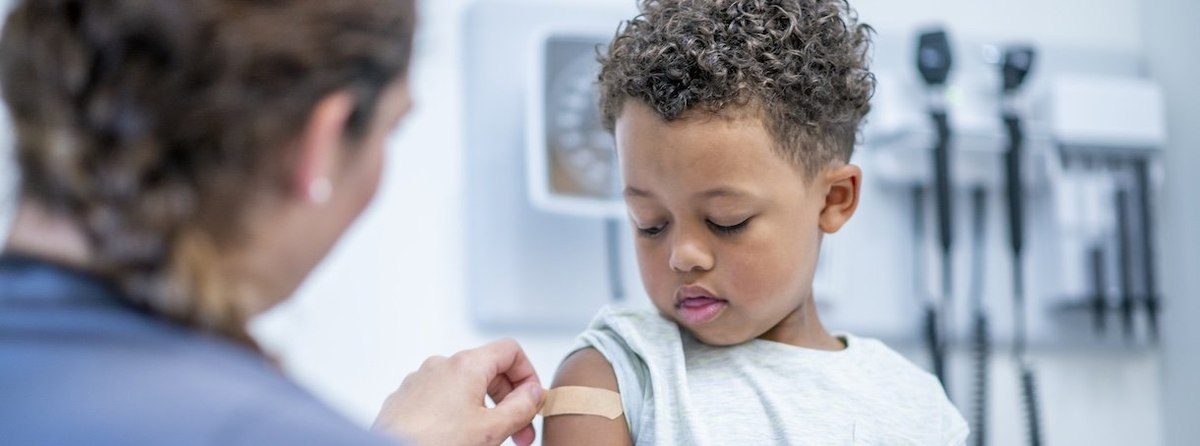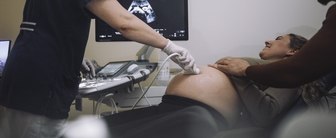A new YouGov survey finds that Americans largely support childhood vaccination: Majorities believe the benefits outweigh the risks, that vaccines work, that the science supporting their safety is well established, and that many of these vaccines should be required. However, misinformation about vaccines persists: Many Americans believe things about vaccines that are at odds with scientific consensus.
One in five Americans (22%) — including 26% of parents with children under 18 — believe it’s definitely or probably true that vaccines have been shown to cause autism. 34% of Republicans and 5% of Democrats say this is definitely or probably true.
28% of Americans say it’s definitely or probably true that vaccines can permanently alter a person’s DNA. 25% think it’s definitely or probably true that the COVID-19 vaccine is the deadliest vaccine ever created. One in five believe that more people have died from COVID-19 vaccines than from the COVID-19 virus.
Republicans are more likely than Democrats to believe each of these statements is true. The largest gaps are on belief that the COVID-19 vaccine is the deadliest vaccine ever created (41% of Republicans and 8% of Democrats believe this is definitely or probably true) and that vaccines can permanently alter a person’s DNA (41% vs. 8%).
Despite the prevalence of misinformation, two-thirds (66%) of Americans believe that vaccines do work to reduce the chance that a person will get a disease. Majorities of Democrats (88%) and Republicans (57%) share this belief.
Additionally, 64% of Americans — including 87% of Democrats and 57% of Republicans — say their view on childhood vaccines for diseases such as measles, mumps, and whooping cough is better captured by the statement, “The science supporting the safety of childhood vaccines is well established,” rather than “The safety of childhood vaccines is an issue requiring further debate.” 21% say the latter comes closer to their view.
Among parents or guardians of children under 18, 51% think the science supporting the safety of childhood vaccines is well-established while 23% think the safety of these vaccines requires further debate. 26% are not sure.
An outbreak of measles in West Texas has increased news coverage of measles recently. As of April 25, 646 cases have been confirmed in the state.
70% of Americans believe the issue of whether children should be vaccinated for diseases such as measles, mumps, and whooping cough is more a matter of public health than of personal choice, up from 63% who said this in February 2021. Democrats (94%) are more likely than Republicans (59%) to hold this view. 22% of Americans, including 4% of Democrats and 33% of Republicans, think it is more a matter of personal choice.
Among parents or guardians of children under 18, 61% think it’s more a matter of public health and 28% think it’s more a matter of personal choice.
22% of Americans know someone who has chosen not to vaccinate their child against childhood diseases such as measles, mumps, and whooping cough. Among parents or guardians with children under 18, 27% do.
71% of Americans say that when it comes to childhood vaccines, their view is closer to, “the benefits outweigh the risks,” than to, “the risks outweigh the benefits” (14%).
Majorities of Americans say that in order to attend public schools, children should be required to get the measles, mumps, and rubella (MMR) vaccine (75%), the chickenpox vaccine (66%), the polio vaccine (64%), and the diphtheria, tetanus, pertussis (DTaP) vaccine (63%). Fewer than half think each of the COVID-19 vaccine (44%), the influenza vaccine (44%), the hepatitis B vaccine (42%), the hepatitis A vaccine (42%), the human papillomavirus vaccine (HPV), and the shingles vaccine (29%) should be required. For all but shingles, more think each vaccine should be required than say it shouldn't; for each, many are unsure.
Parents or guardians of children under 18 are less likely than other adults to say children should have to get the MMR vaccine (68% vs. 77%), the polio vaccine (54% vs. 67%), or the DTaP vaccine (53% vs. 66%) to attend public schools.
47% of Americans believe the federal government requires school-age children to get certain vaccines, while 28% believe the federal government recommends certain vaccines for school-age children but does not require them. The Centers for Disease Control and Prevention, a federal agency, does recommend vaccines for children. But any regulations around which vaccines a child must have to attend public schools is determined by the child's state.
17% of Americans trust their state’s government a great deal on setting childhood vaccination policies. Democrats (29%) are more likely than Republicans (16%) to trust their state government a great deal to set childhood vaccination policies. 34% of Americans trust their state government a fair amount, 23% don’t trust it very much, and 15% have no trust at all in their state government on setting childhood vaccination policies.
Some states allow exemptions for some children from childhood vaccination requirements. 72% of Americans think a medical condition justifies exempting a child from getting immunizations. Less than half believe an exemption is justified for any of the other reasons listed in the survey, including religious beliefs (33%) or concern for the side effects (29%). 17% say parents don’t need a reason to exempt their children from getting immunizations.
Among parents or guardians of children under 18, 36% think concern for the side effects justifies exempting a child from the vaccination requirements. 23% say parents do not need a reason.
Related:
- Are Americans OK with lying to get or avoid getting a COVID-19 shot?
- Fewer than half of Republicans now support requiring childhood vaccinations for infectious diseases
- Most Americans are locked into their views on vaccine mandates, no matter who’s affected or how
See the results for this YouGov survey
— Carl Bialik and Taylor Orth contributed to this article
Methodology: This article includes results from an online survey conducted April 1 - 4, 2025 among 1,067 U.S. adult citizens. Respondents were selected from YouGov’s opt-in panel to be representative of adult U.S. citizens. The sample was weighted according to gender, age, race, education, 2024 presidential vote, 2020 election turnout and presidential vote, baseline party identification, and current voter registration status. 2024 presidential vote, at time of weighting, was estimated to be 48% Harris and 50% Trump. Demographic weighting targets come from the 2019 American Community Survey. Baseline party identification is the respondent’s most recent answer given around November 8, 2024, and is weighted to the estimated distribution at that time (31% Democratic, 32% Republican). The margin of error for the overall sample is approximately 4%.
Image: Getty (FatCamera)
What do you really think about President Trump, American politics in general, and everything else? Share your reality, join the YouGov panel, and get paid to share your thoughts. Sign up here.












